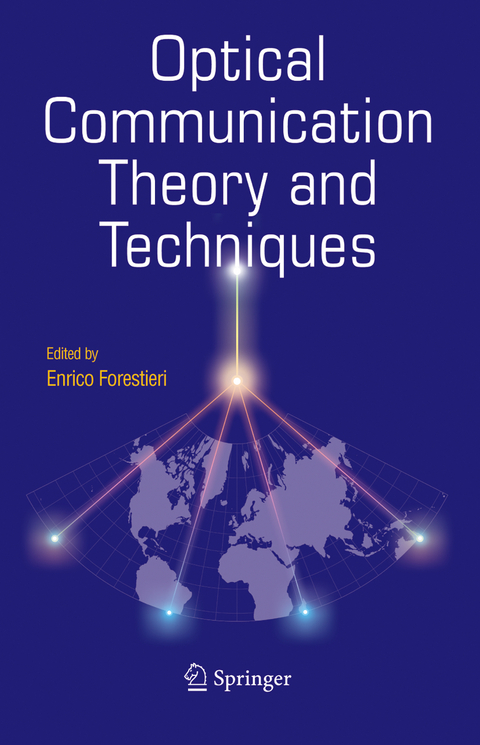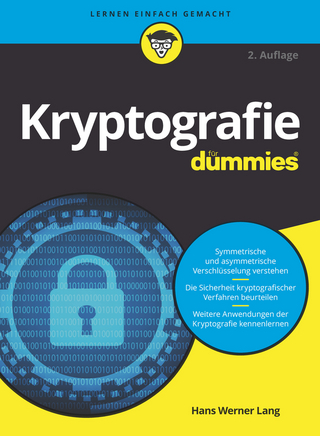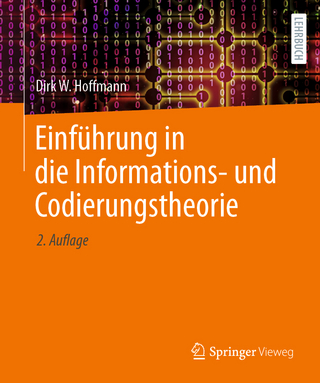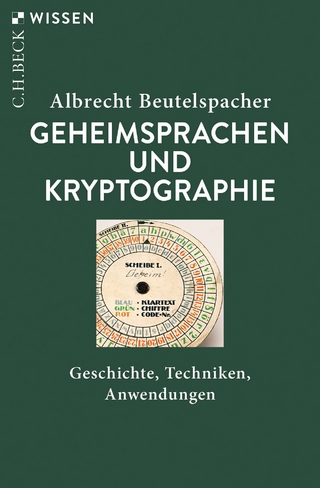
Optical Communication Theory and Techniques
Springer-Verlag New York Inc.
978-1-4419-3577-9 (ISBN)
Solving the Nonlinear Schrödinger Equation.- Modulation and Detection Techniques for DWDW Systems.- Best Optical Filtering for Duobinary Transmission.- Theoretical Limits for the Dispersion Limited Optical Channel.- Capacity Bounds for Mimo Poisson Channels with Inter-symbol interference.- QSpace Project: Quantum Cryptography in Space.- Quantum-aided Classical Cryptography with a Moving Target.- Channel Coding for Optical Communications.- Soft Decoding in Optical Systems: Turbo Product Codes vs. LDPC Codes.- Iterative Decoding and Error Code Correction Method in Holographic Data Storage.- Performance of Optical Time-spread CDMA/PPM with Multiple Access and Multipath Interference.- Performance Analysis and Comparison of Trellis-coded and Turbo-coded Optical CDMA Systems.- A Methodology for Calculating Performance in an Optical Fiber Communications System.- Markov Chain Monte Carlo Technique for Outage Probability Evaluation in PMD-compensated Systems.- A Parametric Gain Approach to Performance Evaluation of DPSK/DQPSK Systems with Nonlinear Phase Noise.- Characterization of Intrachannel Nonlinear Distortion in Ultra-high Bit-rate Transmission Systems.- Mathematical and Experimental Analysis of Interferometric Crosstalk Noise Incorporating Chirp Effect in Directly Modulated Systems.- On the Impact of MPI in All-Raman Dispersion-compensated IMDD and DPSK Links.- Modulation Formats for Optical Fiber Transmission.- Dispersion Limitations in Optical Systems Using Offset DPSK Modulation.- Integrated Optical Fir-filters for Adaptive Equalization of Fiber Channel Impairments at 40 Gbit/s.- Performance of Electronic Equalization Applied to Innovative Transmission Techniques.- Performance Bounds of MLSE in Intensity Modulated Fiber Optic Links.- On MLSE Reception of ChromaticDispersion Tolerant Modulation Schemes.
| Erscheint lt. Verlag | 29.10.2010 |
|---|---|
| Zusatzinfo | XII, 216 p. |
| Verlagsort | New York, NY |
| Sprache | englisch |
| Maße | 155 x 235 mm |
| Themenwelt | Mathematik / Informatik ► Informatik ► Netzwerke |
| Informatik ► Theorie / Studium ► Kryptologie | |
| Informatik ► Weitere Themen ► Hardware | |
| Technik ► Elektrotechnik / Energietechnik | |
| Technik ► Nachrichtentechnik | |
| ISBN-10 | 1-4419-3577-0 / 1441935770 |
| ISBN-13 | 978-1-4419-3577-9 / 9781441935779 |
| Zustand | Neuware |
| Informationen gemäß Produktsicherheitsverordnung (GPSR) | |
| Haben Sie eine Frage zum Produkt? |
aus dem Bereich


